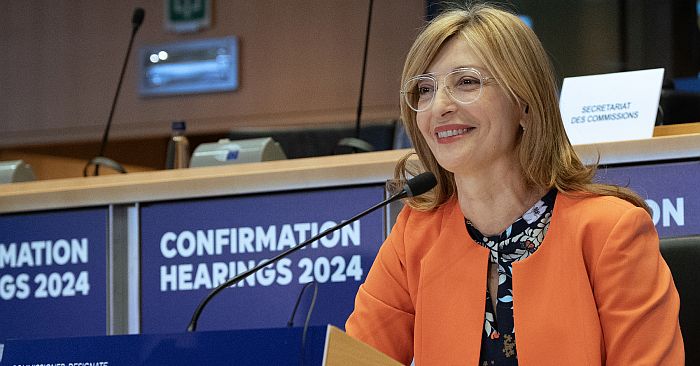
Ekaterina Zaharieva to be new EU Commissioner for Start-ups, Research and Innovation from 1 December 2024

The new commissioner is calling for a bigger budget to boost research and innovation in Europe. The successor programme to Horizon Europe will receive more funding from 2028. Zaharieva believes the EU has a duty to raise the R&D rate to three per cent of GDP. Only four member states (Austria, Belgium, Germany and Sweden) currently meet this target. Private investment should also be encouraged more to boost Europe's innovation engine. But relying on more money alone is not enough - she calls for a "radical simplification" of research funding: lump sums, shorter application procedures and the newly proposed "trust first/evaluate later" approach should make the funding system more efficient and accessible.
A European Innovation Act and new ways for start-ups
Zaharieva wants to create better conditions for start-ups and scale-ups. Right at the start of her term, she plans to hold a stakeholder forum to lay the foundations for a new innovation policy in consultation with relevant stakeholders. The aim is to create a European Innovation Act to facilitate access to capital and the cross-border employment of skilled workers, as well as simplifying bureaucracy in Europe. Another priority is the introduction of a new EU-wide harmonised legal option (the so-called '28th regime') to make it easier for start-ups to expand within the European single market.
The '28th regime' is a concept developed within the European Union to provide businesses and citizens with an additional EU-wide harmonised legal option to co-exist with the 27 different national legal systems. It represents a "28th set of rules" - hence the term "28th regime" - and is intended in particular for areas where national differences are considered to be an obstacle to the internal market.
European Innovation Council: more expert influence on investment decisions
In addition to these core projects, Zaharieva has other initiatives in her sights. She is in favour of giving more weight to experts in the design of collaborative research, and in particular wants to give the programme managers of the European Innovation Council more influence over investment decisions, inspired by the structure of the ERC. Strengthening defence research is also on her agenda, without neglecting civil priorities. She also plans to present a legislative act on the European Research Area by 2026, addressing issues such as talent retention, research ecosystems and academic freedom.
Zaharieva brings with her many years of experience in the Bulgarian government, including as foreign minister, justice minister and deputy prime minister. Her confirmation, and that of the entire new EU Commission, by the European Parliament is expected by the end of the year.
The hearing can be found here.




